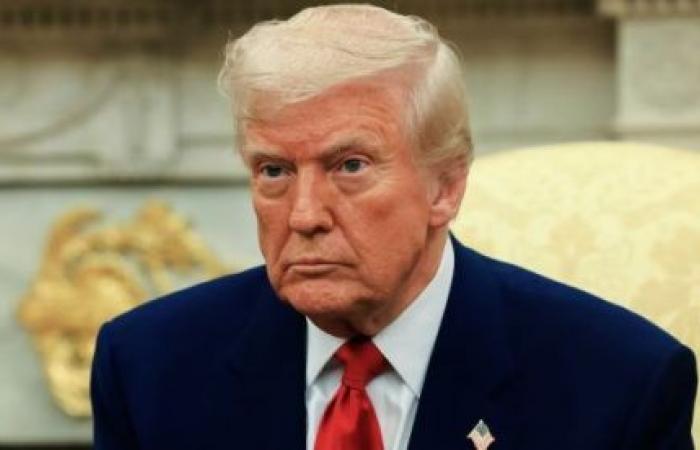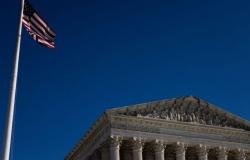(Ecofin agency) – Deletion of USAID, MCC, USADF … Since his return, Donald Trump wants to refocus American public aid. Its 2026 budget announces major cups, in the name of the “America First” and a fight against the “deviation” of international funding.
The presentation, on May 2, 2025, of the main orientations of the American federal budget for the year 2026 by the Trump administration raised many questions, especially for Africa. Behind the accounting lines, this budgetary project confirms a major turning point in the international posture of the United States, with important potential repercussions on economic and diplomatic relations with the African continent.
On the front line of the proposed cuts, appears to be the abolition of the American contribution to the African Development Fund (FAD), or 555 million dollars. This concessional loan window from the African Development Bank Group (BAD) had however benefited from a commitment of $ 568 million from Washington during its last reconstruction in 2022. If this decision is not likely to compromise the functioning of the FAD in the short term, it nevertheless sends a clear signal: the United States intends to redefine its financing priorities internationally.
More generally, the draft budget provides for a drastic reduction of 83.7 % of the funding allocated to state and international programs or approximately $ 49.1 billion less compared to 2025. The State Department, Treasury Programs and several international agencies, very active in Africa, could pay the costs. Major projects, especially in the fields of Health, education or agriculture, are thus likely to find themselves amputated or paralyzed.
The White House justifies this reorientation by denouncing what it describes as ideological abuses: ” Economic aid and American development has been diverted to radical and leftist priorities, including climate change, diversity, equity and inclusion (DEI), and LGBTQ activities around the world », Can we read in the budgetary document. The announced objective is to refocus American assistance on direct strategic interests of the United States, by favoring the repercussions for the American taxpayer and by strengthening national security.
In this context, several international institutions, historically supported by the United States, see its future budgetary seriously threatened. The budget does not provide for any funding for United Nations peacekeeping missions, a large part of which takes place in Africa, invoking ” recent failures » et « a high level of contributions requested ». Contributions, compulsory or voluntary, at the UN, UNESCO, WHO or even fida would be suspended or deleted. The World Health Organization, for example, already anticipates a 40 % reduction in its staff, a direct consequence of the American funds freeze.
-The impact for Africa could also be felt humanitarian. The budget provides for a reduction of $ 3.2 billion on aid in the event of a disaster, migration and refugees (ERMA). These funds would be grouped in a new international humanitarian assistance account (IHA) and a discretionary ERMA fund, only funded when help ” serve the president’s foreign policy objectives ». The agriculture and climate sectors, which are also strongly concerned, would lose the support of the “Food for Peace” program, as well as American funding for the global environment fund or climate investment funds. So many levers for supporting sustainable development, often mobilized in Africa.
But beyond the cuts, this budgetary project also offers a reorganization of the financing instruments. The America First Opportunity Fund (A1OF), with $ 2.9 billion, embodies this new logic: investing where American strategic interest is at stake, in particular to counter the growing influence of China. Although Africa is not directly cited, it could be indirectly concerned by these geopolitical repositioning.
Another notable signal: the consolidation of the role of the US International Development Finance Corporation (DFC), whose budget is increased by $ 2.8 billion. Active on more than 300 African projects totaling more than $ 13 billion in Africa alone, the DFC could become the main economic armed wing of Washington on the continent, with a renewed interest in strategic sectors such as mines.
In addition, the Trump administration announced a commitment of $ 3.2 billion over three years, for the 21ste Reconstitution of the International Development Association (IDA), the World Bank window allowing to grant concessional funding to developing countries. If this contribution remains lower than the 4 billion which had been promised by Joe Biden, it remains very important funding for the operations of the World Bank in Sub -Saharan Africa in particular, which has the largest number of beneficiaries of IDA funding.
Finally, if certain global health programs are affected by discounts, the financing of the US President’s emergency plan for the fight against AIDS (PEPFAR), a pillar of the fight against HIV/AIDS, is preserved for currently beneficiaries, confirming that certain American commitments remain held, in fields deemed essential to global public health … and the United States health security.
Moutiou Adjibi Nourou








